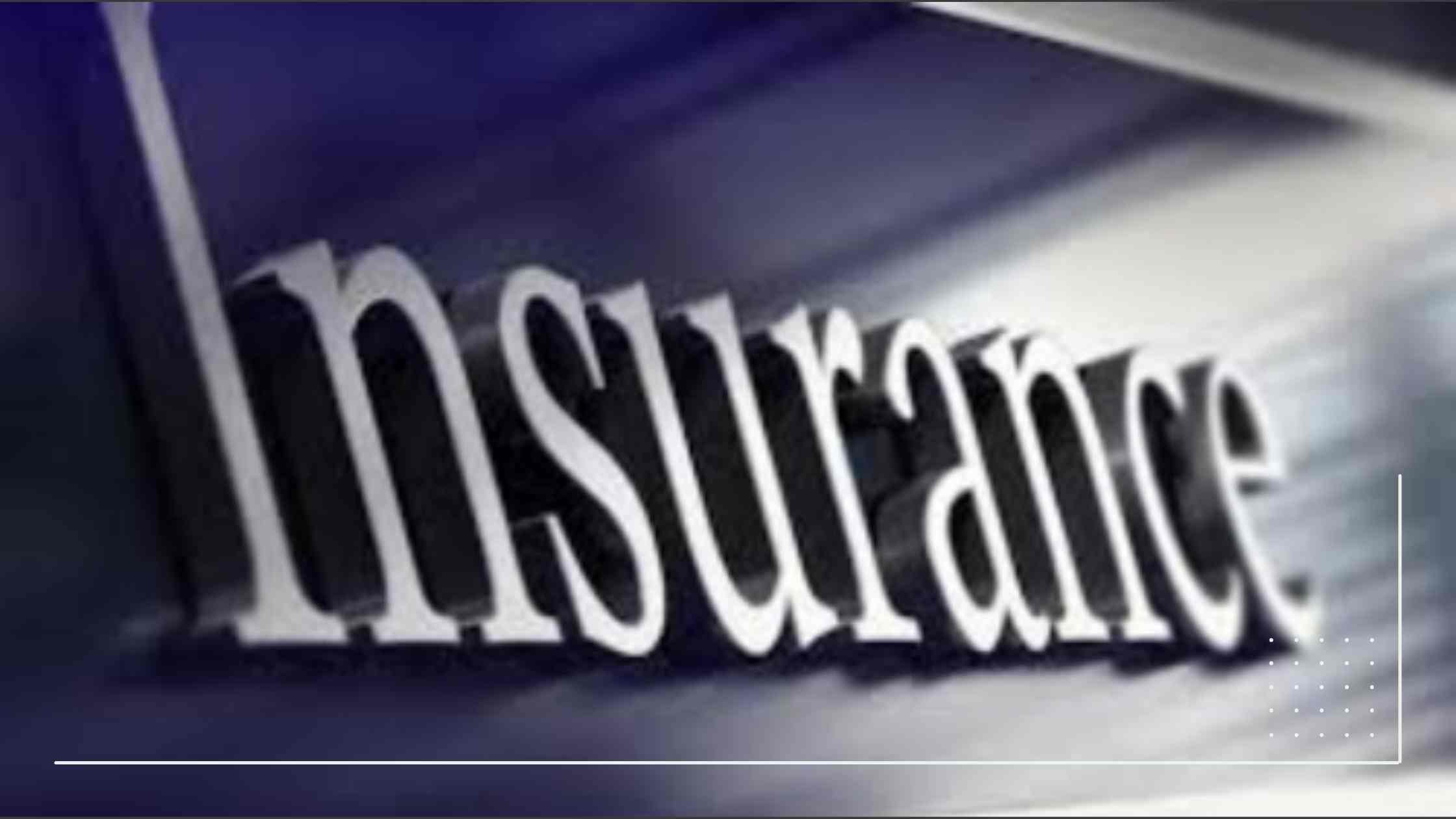Understanding Insurance in Nigeria: A Comprehensive Guide

by Counseal Team
Updated March 7, 2024

Imagine this. You’ve just invested your hard-earned money into buying a new car, your dream ride. But then, disaster strikes. You’re involved in an accident. What’s next? If you’re insured, you breathe a sigh of relief. If you’re not, well, it’s a different story.
This is where insurance comes in.
It’s a contract in which an individual or entity receives financial protection or reimbursement against losses from an insurance company. It’s like having a financial safety net, a shield that protects you from unexpected financial burdens.
In this article, we will walk you through an overview of insurance in Nigeria, the types, online insurance in Nigeria and how to claim insurance in Nigeria.
- Types of Insurance in Nigeria
- Choosing the Best Insurance for Your Needs
- The Benefits of Buying Insurance Online
- Tips on Buying Insurance Online
- How to Claim Insurance in Nigeria
- Common Scenarios for Insurance Claims in Nigeria
- Advice for Avoiding Disputes with Your Insurance Provider
- Wrapping Up
- Take Action
The Nigerian Insurance Landscape: An Overview
When we look at the Nigerian market, the insurance sector plays a significant role. With a market size of approximately $1.8 billion in gross premiums, it’s a sector that’s gaining momentum. However, insurance penetration remains quite low at about 2.9%. This means there’s a vast majority of Nigerians who are yet to embrace the potential benefits of insurance.
In terms of challenges, the insurance sector in Nigeria, like many other sectors, has its fair share. From low awareness and understanding of insurance products, to regulatory challenges, and the absence of a robust digital infrastructure, the industry has a long way to go. But remember, where there are challenges, there are opportunities.
Types of Insurance in Nigeria
There are several types of insurance available in Nigeria. These include life, health, property, motor insurance, travel insurance and among others. Each of these serves a specific purpose and caters to different needs.
- Life insurance offers financial security to your loved ones in the event of your untimely demise.
- Health insurance, on the other hand, provides coverage for your medical expenses.
- Motor insurance covers your vehicle against potential damages,
- while property insurance protects your property from damages caused by disasters such as fire, theft, or natural calamities.
- Marine insurance is specifically designed to cover the loss or damage of ships, cargo, terminals, and any transport by which the property is transferred.
Choosing the Best Insurance for Your Needs
So, how do you choose the best insurance for your needs? Well, it’s not as complex as it sounds. Just like choosing a new car or a home, it boils down to your personal needs, risk tolerance, and financial capability.
Firstly, identify what you need to protect–your life, health, property, or vehicle. Then, evaluate the different insurance products available in the market. Compare the coverage, premiums, and terms and conditions. Consider the reputation and reliability of the insurance provider. And most importantly, make sure you understand the policy clearly before you sign on the dotted line.
Next let’s delve into the factors you should consider when choosing the right insurance provider:
Reputation and Credibility
The reputation of an insurance provider is the cornerstone of their credibility. You want a provider that’s reliable, trustworthy and has a solid track record. This can be gauged by their standing in the industry, customer reviews, and their financial strength.
Customer Service and Claims Settlement
The real value of an insurance policy comes into play when you need to make a claim. Therefore, the efficiency of the provider’s claims settlement process is a critical factor. How straightforward is it to file a claim? How long does it take for the claim to be processed and settled? These are questions you should find answers to.
Coverage and Benefits
The type of coverage provided by the insurance plan and its benefits are important to consider. Does the provider offer comprehensive coverage that suits your specific needs? Do they have a variety of plans to choose from? These are key considerations.
Premiums and Discounts
While the cost of premiums should not be the sole determining factor, it’s undoubtedly significant. Be sure to compare the premiums of different providers and the discounts they offer for various reasons, such as bundling multiple policies.
Online Presence and Accessibility
In today’s digital age, an insurance provider’s online presence and accessibility are also important. Can you access your policy information online? Can you file claims or make payments on the provider’s website or mobile app? If the answer is yes, that’s a plus!
Now that we’ve outlined the factors to consider, let’s take a look at some of the top insurance providers in Nigeria:
Top Insurance Providers in Nigeria
- Leadway Assurance: A leading provider known for its comprehensive coverage, innovative products, and reliable customer service.
- AIICO Insurance: Offers a wide range of insurance products and has a strong reputation for its efficient claims settlement process.
- AXA Mansard: Known for its financial strength and stability, AXA Mansard offers a variety of insurance products tailored to meet specific needs.
- Custodian and Allied: This provider stands out for its excellent customer service, competitive premiums and outstanding online presence.
- Cornerstone Insurance: With a solid track record, Cornerstone Insurance offers a range of insurance products and has a strong reputation for its efficient claims process.
Choosing the right insurance provider is a crucial decision that can significantly affect your business operations. By considering the factors outlined above, you can make an informed choice that best suits your needs. Remember, insurance is not just a cost—it’s an investment in the security and continuity of your business. Choose wisely!
The Benefits of Buying Insurance Online
In today’s digital age, buying insurance online has become the norm rather than the exception. This shift from traditional methods offers a myriad of benefits, making it an irresistible option for the modern Nigerian entrepreneur.
Convenience and Speed
First and foremost, purchasing insurance online offers unparalleled convenience and speed. Gone are the days of queuing at insurance offices or waiting for a broker to stop by. With a few clicks, your business is covered, and you can get back to what matters – running your enterprise.
Comparison and Customisation
Buying insurance online opens up a world of comparison. You can browse different policies, weigh their pros and cons, and choose the one that best suits your business needs. Plus, many online platforms allow you to customise your policy, ensuring you pay only for the coverage your business requires.
Transparency and Security
Online platforms provide transparency like never before. Every detail of the policy is laid out clearly, ensuring you know exactly what you’re signing up for. Plus, with secure payment gateways, your financial information is well-protected.
Savings and Rewards
Lastly, buying insurance online can lead to significant savings. Online platforms often offer competitive prices and rewarding discounts, helping your business’s bottom line.
Tips on Buying Insurance Online
Having established the benefits, let’s delve into some practical tips on buying insurance online. These are outlined below:
Research and Comparison
Before making a commitment, do your due diligence. Compare different policies, check the coverage, and ensure it aligns with your business needs. Don’t be swayed by low prices alone; the cheapest policy might not offer the best coverage.
Read the Terms and Conditions
This cannot be overstated: Always read the terms and conditions. It might be tedious, but it’s crucial to understand what the policy covers and what it doesn’t.
Check Reviews and Ratings
Customer reviews and ratings can give you a glimpse into the provider’s reliability and service quality. Look for providers with positive reviews and high ratings.
Secure Payment and Records
When making your purchase, ensure you’re using a secure payment method. Also, keep a record of the transaction for future reference.
Having reviewed tips on online insurance platforms, we will take a look at some online platforms that offer insurance in Nigeria:
- RelianceHMO: A trusted name in health insurance, offering comprehensive coverage for businesses of all sizes.
- CompareIN: A platform that lets you compare different insurance policies and choose the one that best fits your needs.
- AutoGenius: If you need auto insurance, this is your go-to platform.
- MyCover: A one-stop-shop for all types of insurance, offering detailed comparisons and customisable policies.
As a Nigerian entrepreneur, buying insurance online can be a game-changer for your business. It offers a hassle-free, transparent, and cost-effective way to ensure your business is covered, allowing you to focus on growth and success. But what if an unfortunate event happens? How do you get claim for your loss? Let’s delve in.
How to Claim Insurance in Nigeria
Step 1: Notifying Your Insurance Provider
When the unexpected happens, you don’t want to be left in the lurch. The first step to making an insurance claim in Nigeria is notifying your insurance provider as soon as possible. The sooner you inform them, the sooner they can start the claims process. Don’t worry if you don’t have all the details – just tell them what you know. It’s like telling a friend about a mishap – you share the basics first, right?
Step 2: Gathering Your Documents
Now, this might seem like a boring bit, but it’s essential. You need to gather all the required documents and evidence for your claim. Think of it as the ‘proof’ in your ‘proof pudding’. These might include medical reports for a health insurance claim or a police report for a car theft. It’s like going for an interview – you need to have all your credentials in order!
Step 3: Filling Out the Claim Form
Next up, you need to fill out the claim form and submit it to your insurance provider. Take your time and fill it out accurately. Remember, you’re not writing a novel here – stick to the facts! It’s like doing a crossword puzzle – you need to get all the words in the right places.
Step 4: Tracking Your Claim
After submitting your claim, don’t just sit back and relax – follow up with your insurance provider and track the progress of your claim. It’s like tracking a parcel – you want to know where it is and when it’s going to arrive, right?
Step 5: Receiving Your Payment
Finally, the moment you’ve been waiting for! Once your claim has been processed and approved, you’ll receive your payment or compensation. It’s like payday – you’ve done the work, now it’s time to reap the rewards!
Common Scenarios for Insurance Claims in Nigeria
Insurance claims can arise from a variety of scenarios. Maybe you’ve been in a car accident or your car has been stolen. Perhaps your property has been damaged by a fire or flood. Or maybe you’ve had a medical emergency or illness. Even more serious events, like death or disability, can lead to insurance claims. Remember, insurance is like a safety net – it’s there to catch you when you fall.
Advice for Avoiding Disputes with Your Insurance Provider
Dealing with an insurance claim can be stressful, but there are ways to avoid or resolve disputes with your insurance provider.
- Always be honest and accurate in your claim – honesty is the best policy, after all.
- Cooperate and communicate with your provider – it’s a two-way street.
- Always seek legal or professional help and as a last resort, you can contact the National Insurance Commission (NAICOM) or the Chartered Insurance Institute of Nigeria (CIIN) for complaints or arbitration.
Wrapping Up
When it comes to claiming insurance in Nigeria, the process may seem daunting, but with these steps, you’ll be well on your way to successfully claiming your insurance. Just remember to be patient, diligent, and proactive. And don’t forget, at counseal.com, we’re here to help guide you through the process!
Take Action
Insurance in Nigeria is evolving, and there are opportunities for businesses to benefit. The key is to understand the importance of insurance, make informed decisions, and choose the right policy.
So, are you ready to explore the world of insurance in Nigeria with us? Let’s dive in, shall we?
Frequently Asked Questions
What is the insurance penetration rate in Nigeria?
- The insurance penetration rate is the ratio of total insurance premiums to the gross domestic product (GDP) of a country
- According to GlobalData, the insurance penetration rate in Nigeria was 0.3% in 2019, which is one of the lowest in the world
- The low penetration rate is attributed to factors such as low income levels, low awareness, cultural and religious barriers, and inadequate regulation
What are the main challenges facing the insurance industry in Nigeria?
- Some of the main challenges facing the insurance industry in Nigeria are:
- Lack of trust and confidence in the insurance providers and their products
- High cost and complexity of insurance products and processes
- Low financial literacy and education among the population
- Inadequate infrastructure and technology to support the delivery and distribution of insurance services
- Fraud and corruption in the insurance sector and the economy at large
What are the main opportunities for the insurance industry in Nigeria?
- Some of the main opportunities for the insurance industry in Nigeria are:
- Growing population and economy with a large potential market for insurance products
- Increasing demand for insurance products due to the impact of COVID-19 pandemic and other risks
- Rising awareness and adoption of digital and mobile platforms for insurance transactions and services
- Government initiatives and policies to support the development and growth of the insurance sector
- Regional and international collaborations and partnerships to enhance the capacity and competitiveness of the insurance sector
What are the main types of insurance products available in Nigeria?
- The main types of insurance products available in Nigeria are:
- Life insurance: This covers the risk of death or disability of the insured person and provides a lump sum or annuity payment to the beneficiaries
- Health insurance: This covers the risk of illness or injury of the insured person and provides reimbursement or direct payment for medical expenses
- Property insurance: This covers the risk of damage or loss of the insured property due to fire, theft, natural disasters, or other perils
- Motor insurance: This covers the risk of damage or loss of the insured vehicle due to accidents, theft, vandalism, or other causes
- Marine insurance: This covers the risk of damage or loss of the insured cargo, vessel, or liability due to maritime perils
How can I compare and buy insurance online in Nigeria?
- You can compare and buy insurance online in Nigeria by using online platforms that offer insurance services, such as:
- RelianceHMO: This is a health insurance platform that provides affordable and quality health plans for individuals, families, and businesses
- CompareIN: This is an insurance comparison platform that allows you to compare and buy different types of insurance products from various providers
- AutoGenius: This is a motor insurance platform that enables you to buy and renew your car insurance online in minutes
- MyCover: This is a property insurance platform that offers flexible and customized home insurance plans for homeowners and renters
- To buy insurance online, you need to follow these steps:
- Do your research and compare different options based on your needs and budget
- Read the terms and conditions carefully and understand the coverage and benefits of the insurance product
- Check the reviews and ratings of the insurance provider and the online platform
- Use a secure payment method and keep a record of the transaction
- Receive your insurance policy and certificate via email or SMS
How can I claim insurance in Nigeria?
- To claim insurance in Nigeria, you need to follow these steps:
- Notify the insurance provider as soon as possible after the occurrence of the insured event
- Gather the required documents and evidence to support your claim, such as:
- Police report or FIR for motor or property insurance
- Medical report or bills for health or life insurance
- Invoice or receipt for marine insurance
- Fill out the claim form and submit it to the insurance provider along with the documents and evidence
- Follow up with the insurance provider and track the progress of your claim
- Receive the payment or compensation from the insurance provider within the stipulated time frame
How can I avoid or resolve disputes with the insurance provider in Nigeria?
- To avoid or resolve disputes with the insurance provider in Nigeria, you should:
- Be honest and accurate in your claim and provide all the relevant information and documents
- Cooperate and communicate with the insurance provider and follow their instructions and guidelines
- Seek legal or professional help if you have any doubts or questions about your claim or policy
- Contact the National Insurance Commission (NAICOM) or the Chartered Insurance Institute of Nigeria (CIIN) for complaints or arbitration if you are not satisfied with the outcome of your claim or the service of the insurance provider





